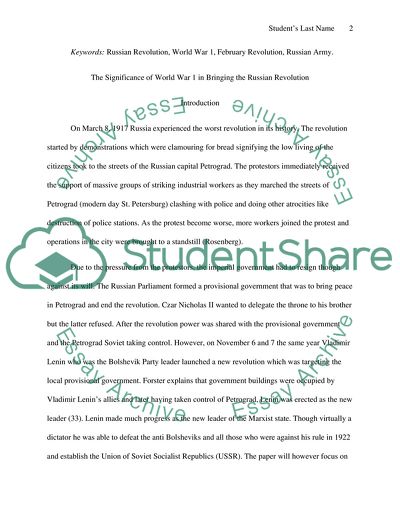Cite this document
(The Significance of World War I in Bringing the Russian Revolution Report Example | Topics and Well Written Essays - 2500 words, n.d.)
The Significance of World War I in Bringing the Russian Revolution Report Example | Topics and Well Written Essays - 2500 words. https://studentshare.org/history/1821663-part-a-how-significant-was-the-first-world-war-in-bringing-about-the-russian-revolution
The Significance of World War I in Bringing the Russian Revolution Report Example | Topics and Well Written Essays - 2500 words. https://studentshare.org/history/1821663-part-a-how-significant-was-the-first-world-war-in-bringing-about-the-russian-revolution
(The Significance of World War I in Bringing the Russian Revolution Report Example | Topics and Well Written Essays - 2500 Words)
The Significance of World War I in Bringing the Russian Revolution Report Example | Topics and Well Written Essays - 2500 Words. https://studentshare.org/history/1821663-part-a-how-significant-was-the-first-world-war-in-bringing-about-the-russian-revolution.
The Significance of World War I in Bringing the Russian Revolution Report Example | Topics and Well Written Essays - 2500 Words. https://studentshare.org/history/1821663-part-a-how-significant-was-the-first-world-war-in-bringing-about-the-russian-revolution.
“The Significance of World War I in Bringing the Russian Revolution Report Example | Topics and Well Written Essays - 2500 Words”. https://studentshare.org/history/1821663-part-a-how-significant-was-the-first-world-war-in-bringing-about-the-russian-revolution.


